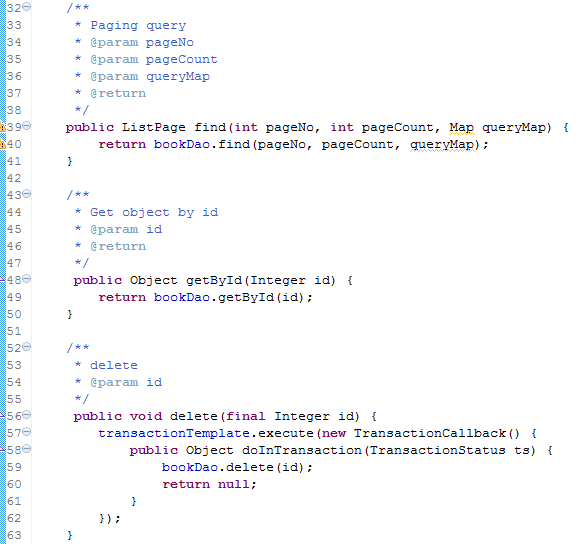serviceImpl(serviceImpl.java.jet) - Service implement
Introduce
Generate the service implement.
Related knowledge:
Task
Model
Tag
Task And Model
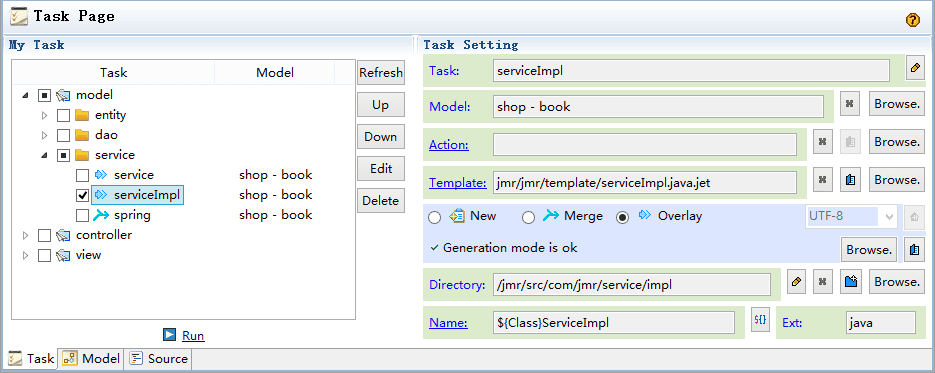
- Model Group: shop
- Model: book
The model group of the current task is shop,
which contain a Java entity model book,
and the relation value of book is one;
More about the model structure of this demo, please click: Demo model structure
There are 2 ways to select the model:
- Select Model Group(Such as shop): <entity> tag need select the relation. This way is used in template, which require multiple models, such as many-to-one, many-to-many.
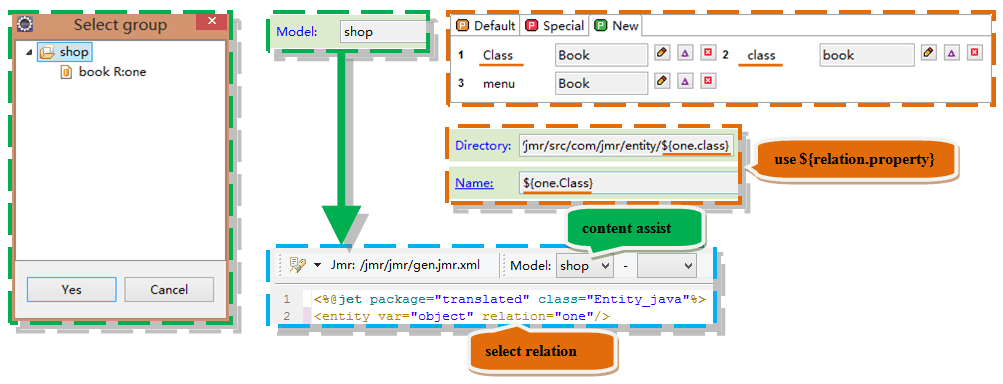
- Select Model(Such as book)(This demo): <entity> tag no need to select the relation. This way is used in template, which require only one model. Of course, you can also select relation together.
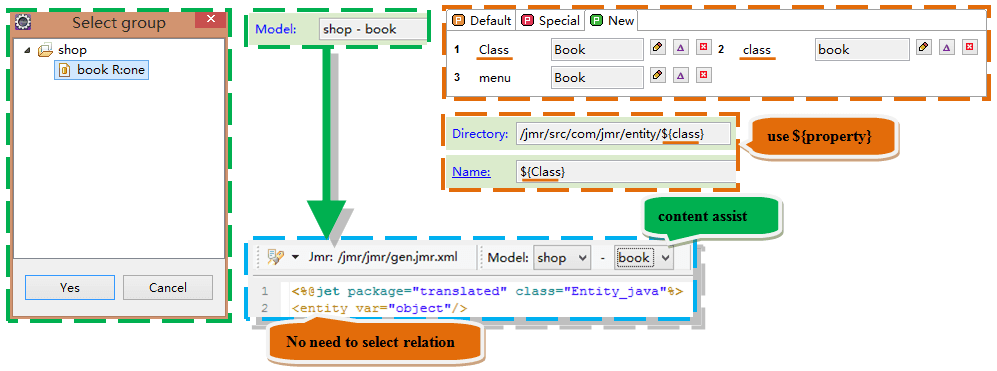
We have created the following properties for this model:
Class: A head uppercase property,
which can be used as the class name or a part that need head uppercase.
It's value is "Book".
class: A lowercase property,
which can be used as a part that need lowercase.
It's value is "book".
menu: The name of the menu bar, and it's value is "Book".

Generate file: ${Class}ServiceImpl

- Ext: The extension is java
Initialization

- Entity tag set the new variable object to get the selected model.
- Set the variable Class as the head uppercase part, get it by object.property("Class").
- Set the variable class as the lowercase part, get it by object.property("class").
package, import and class
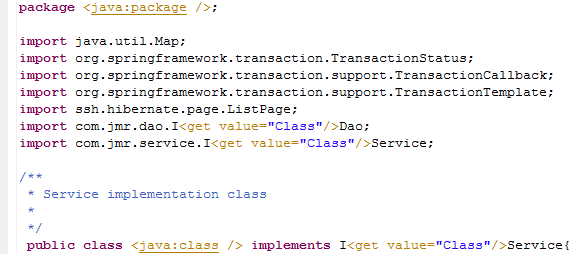
- Use java:package tag to automatically get the current package path.
- Use java:class tag to get the class name. The class name is the file name of the task: the value of ${Class}ServiceImpl is BookServiceImpl.
- Use get tag to get Class, and it's value is Book, used to splice IBookDao, IBookService these 2 classes.
Result
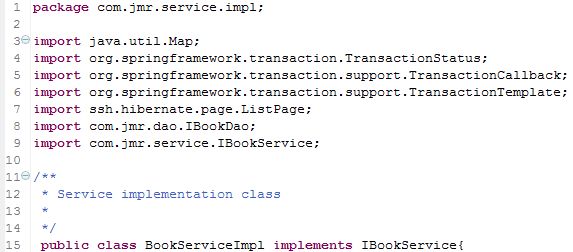
Declare IBookDao object

Result
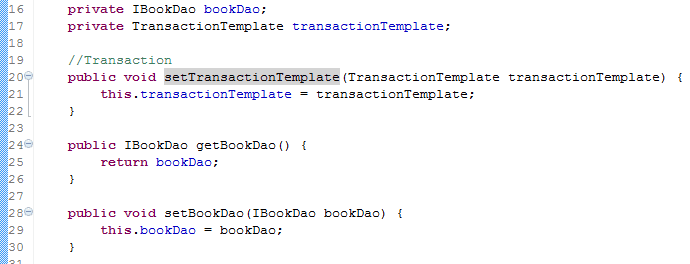
Implement method
Then call the IBookDao object implementation method. The reflection method encapsulates the business logic. Of course, if not by reflection,
Business logic can also use for tag iterate over object.fields.
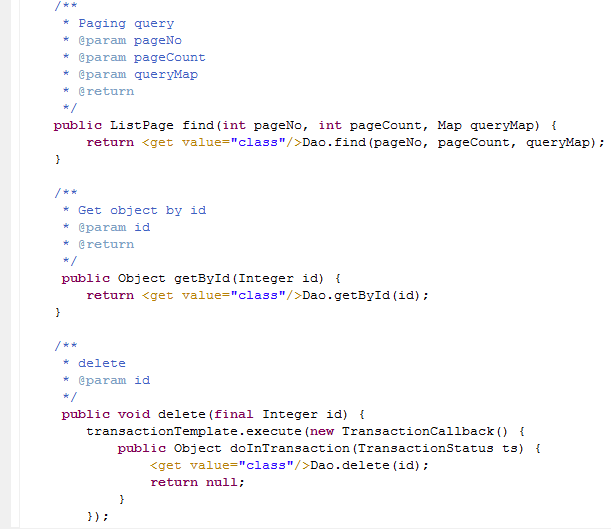
Result
